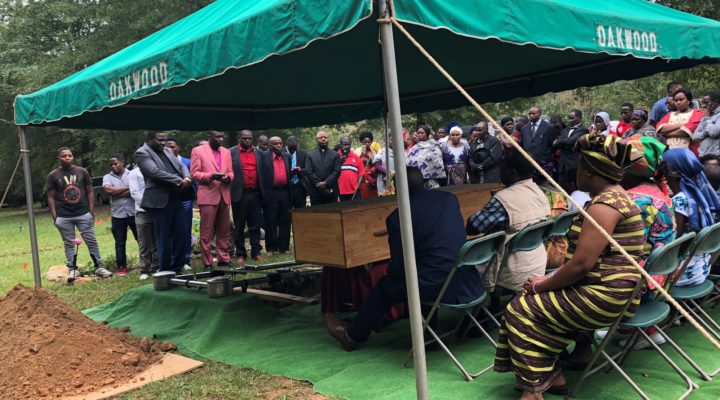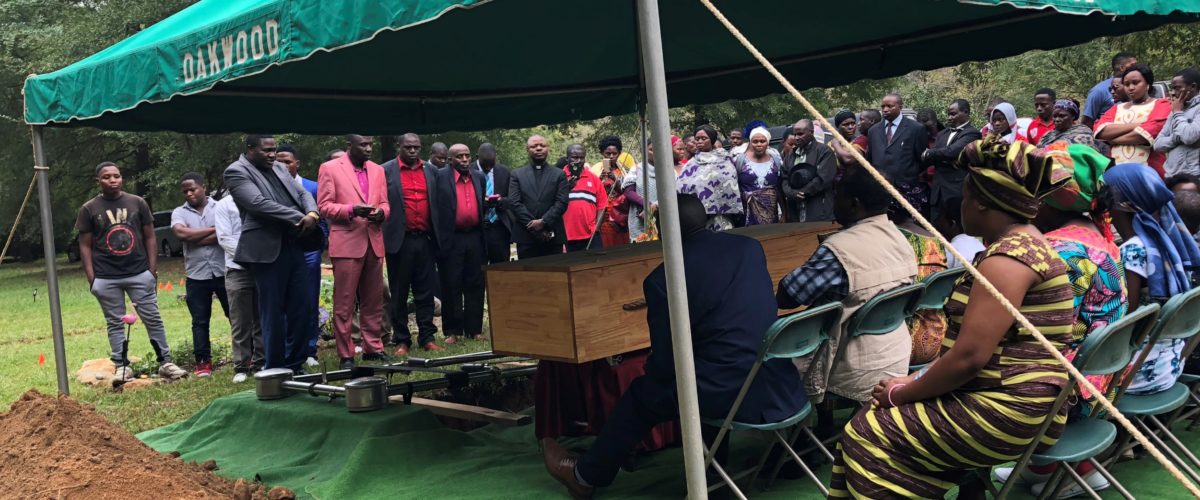Terrible tales of woe come with the territory when ministering to refugees resettled in the United States.
But the ongoing case of a Congolese family who arrived in North Carolina this summer has risen above and beyond the usual level of heartbreak and has even shaken the cloud of Baptist volunteers surrounding and supporting the bewildered and grieving newcomers.
It started in early July when the eight-member Munyankuyo family – a grandmother, two parents and five children ages 8 to 15 – landed in Raleigh after years spent surviving war, hunger and sweltering refugee camps. The images and first names of the family were not divulged in order to respect their privacy.
But the family’s struggles continued despite being welcomed by local faith-based groups, including seasoned volunteers from Greystone Baptist Church, Cooperative Baptist Fellowship field personnel Marc and Kim Wyatt and CBF church planters Felix and Nicole Iyoko, who also are Congo natives.
Traditional bush people, the Munyankuyos were overwhelmed by profound language and cultural barriers that baffled them even as mom and dad struggled to find employment and schools for the children.
Enter Hurricane Florence. Its ominous approach challenged the Africans’ ability to comprehend North American weather patterns. Even with help, their stress levels skyrocketed trying to prepare for a storm they couldn’t comprehend.
And as they did that, the wife and mother died in her sleep unexpectedly the morning of Sept. 12 – just days before Florence was to make landfall in North Carolina.
Grief overwhelmed the confused and frightened family, who need interpreters to communicate for even the most basic of needs.
Those ordained and lay ministers struggled, too. As the storm bore down, they had to explain the role of the medical examiner and the differences between American and Congolese funeral customs. They also had to help the family raise money for everything from embalming to the funeral, which was held Monday.
The father, having lost his wife and unable to understand English, has all but totally shut down.
“I just can’t imagine the pressure to get ready (for a hurricane) and my spouse is dead,” said Amanda Atkin, associate minister for faith formation at Greystone Baptist Church, a CBF congregation in Raleigh that is heavily invested in refugee ministry.
“The weight, you can just see it in how he sits and how he struggles to respond,” she said. “Most of the time his head is hung down.”
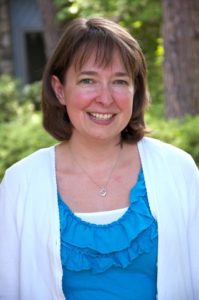
Amanda Atkin
No doubt the prospect of suddenly being a single parent in a strange country, and with so many questions, is overwhelming, she said.
“He is on his own with this elderly mother and his five kids,” she said. “That’s hard for American dads who understand the culture. And he’s been in the country only nine weeks.”
‘It’s culture shock’
Those who routinely work with refugees will testify that it’s an uphill battle even without the hurricanes and the deaths of spouses.
“The challenges are multiple,” said Joanne Thompson, a Greystone Baptist Church member and registered nurse who works with refugees in the Raleigh area.
The newcomers often are without transportation, since they usually do not have enough money to purchase vehicles or the language skills to get learner’s permits, she said.
Public transportation is an option, she said, depending on the municipality.
“In Raleigh we do not have a sophisticated public transportation system,” Thompson said. “If you’re in D.C., you can ride anywhere.”
Lack of transportation and language skills also complicate the employment picture for most refugees, she added. And even when parents find minimum-wage positions, one of them has to work days and the other nights in order to care for their children.
“There is no affordable childcare for them,” Thompson said.
The children commonly struggle in school due to language and cultural hurdles.
Thompson said just learning the little things that Americans take for granted can also make life more difficult.
“Some of these folks don’t know how to mail a letter. They don’t know how to put a stamp on an envelope and mail it. They don’t understand paying bills. It’s culture shock,” she said.
For the Congolese family who lost their mother and wife, all of that is now compounded by grief, Atkin said.
And for those assisting them, and especially the father, it’s also a steep learning curve.
“We have to teach him how to take the bus to visit his wife’s grave,” Atkin said.
‘God will not forsake his people’
Even the Wyatts, who have ministered to refugees for 22 years, say this case is one of the most difficult they’ve witnessed.
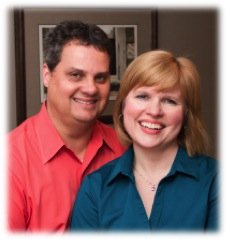
Marc and Kim Wyatt
“The thing about this family is they had endured such great loss before they even came” to the U.S., Marc Wyatt said.
As Congolese they have endured years of war and extreme hardship escaping it. And like other refugees seeking resettlement in Western nations, they have spent years living in refugee camps awaiting that chance.
They were also hit hard emotionally because they arrived in the U.S. without two of their children, a 19- and 2-year-old. Greystone Baptist has helped file an appeal with the federal government for their refugee applications to be expedited.
Meanwhile, the culture shock is even worse for them because they lived in rural Africa, Kim Wyatt said.
“This family is particularly off balance,” she said. “When they arrived you could just tell this family was more vulnerable than others.”
Fortunately, Raleigh is home to a strong faith-based network dedicated to helping refugees adjust to live in America.
The Munyankuyos spent a few days in the Wyatts’ Welcome House for refugees until volunteers could furnish an apartment for the family.
They also were connected with the congregation at Shiloh Restoration Church, the CBF church plant launched by the Iyokos.
It was a good thing, because Felix and Nicole and members of their church swarmed in on the family when the Munyankuyo mother died.
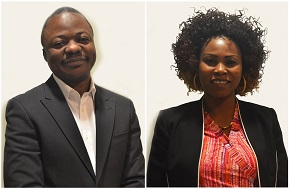
Felix and Nicole Iyoko
Felix Iyokos said he works regularly with African refugees.
“This is the first time I have seen anything like this,” he said of a family dealing with death, a hurricane and profound cultural differences.
“It made me so sad because they just arrived in America and now this funeral costs a lot of money and they need money to take care of themselves,” he said.
If there is a silver lining, Iyoko said it may be the family seeing how much love and support they are receiving.
“It’s even comforted me to see that God will not forsake or abandon his people,” he added.
‘Their whole lives have just fallen apart’
Planning the funeral was particularly difficult for the surviving husband and for those helping him through it, Atkin said.
“You could tell he was trying to do the right thing by his wife, to make it an experience that honored his wife and would be good for his children,” Atkin said.
“But he was having trouble overcoming the American part of it.”
That included the laws governing the preparation and burials – rules that didn’t exist in rural Africa, she said. The man didn’t understand embalming and why his wife couldn’t simply be buried in a nearby field.
Meanwhile, Atkin worked with the funeral home to allow the family to remain present while the grave was closed, which is Congolese custom.
Fortunately, enough money was raised to cover the funeral expenses, but more donations are needed to help them with living expenses now that a potential source of income has been lost.
“And did I mention there are five kids running around doing kids’ things and their whole lives have just fallen apart?” she said.
Donations for the family may be made by sending checks to Greystone Baptist Church, 7509 Lead Mine Road, Raleigh, NC 27615, Attn: Munyankuyo Family.

